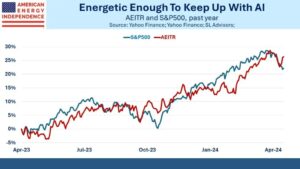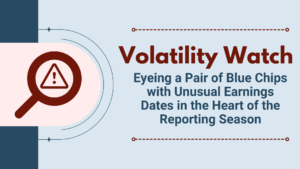Another morning, another set of concerns. Today’s round comes from Europe when concerns about Deutsche Bank (DB) and some of its Continental peers came to the fore. Another set of shudders arose when we learned that Treasury Secretary Yellen called an unscheduled meeting of the Financial Stability Oversight Council (FSOC). People are skittish and of the mindset to take any news about the banking system in the worst possible light.
Let’s consider the second news item first. What else would you rather the Treasury Secretary do? The FSOC is a who’s who of federal regulators, with the committee comprised of the heads of the Federal Reserve, the FDIC and others. The committee itself has no specific authority, but its members head organizations that do. It shouldn’t be a bad thing to put all those people in the same room at the same time per se, but if you’re inclined to worry, then an unscheduled meeting becomes an emergency meeting, and an emergency means that something is seriously wrong. As I write this, I know of no specific emergency. It could simply be the first time they could meet – we know that both Secretary Yellen and Federal Reserve Chair Powell were otherwise occupied with some important prior engagements this week.
The DB situation is emblematic about how banking contagion spreads. It is all too normal for investors who see a problem in one company to be concerned about similar problems at its industry peers. That concern is magnified when the financial sector is the epicenter of the worries. Large banks tend to be interconnected, with shared exposures on syndicated loans, and via a web of repo and other counterparty transactions. It is logical, though unhelpful, for investors who were burned by one bank to get serious jitters about those that most resemble it. When Silicon Valley Bank (SIVB) failed, investors fretted about First Republic (FRC), PacWest Bancorp (PACW), and others. The troubles at Credit Suisse (CS)have now led to demand for credit default swaps (CDS) to protect bondholders of DB, Commerzbank, Societe Generale, and BNP Paribas, among others.
It is important to remember how credit default swaps and equities are interrelated. Credit default swaps are contracts that essentially insure the buyers against a default in a given company’s bonds. A default can be catastrophic for bondholders, since it impairs the income stream on which the holders depend. As a result, the market value of the bond can fall substantially and precipitously. As with any insurance, the cost of coverage rises as the perception of risk grows. If bondholders turn increasingly risk averse, the cost of CDS, which act as insurance, rise as a result.
On the surface it would appear that these are difficult instruments for the sellers to hedge. Considering the indebtedness of large banks, that is certainly the case. But in 2008, we learned that equity puts could act as a decent hedge. Consider the capital structure of a company. Bonds sit above equity in the capital structure[i], so in theory if bondholders can’t be made whole, then stockholders are wiped out. That makes low-priced equity puts a valuable hedge for CDS. There was tremendous demand for low-strike puts – both near-term and LEAPS – during the global financial crisis. (I discussed this on Bloomberg’s “What Goes Up” podcast yesterday.)
Some may note that this structure may not prove to be the case with CS “CoCo” bonds. While it is true that those bondholders risk being wiped out before stockholders, I would assert that equity puts would have offered decent protection against the stock’s drop to its current price of $0.82.
Considering the asymmetric level of risk and reward when a banking crisis rears its head, it should not be too surprising that few seem eager to take on too much risk over the weekend. Let’s give the US equity market some credit for being only modestly lower this morning. We’ll see how it finishes.
—
Originally Posted March 24, 2023
Disclosure: Interactive Brokers
The analysis in this material is provided for information only and is not and should not be construed as an offer to sell or the solicitation of an offer to buy any security. To the extent that this material discusses general market activity, industry or sector trends or other broad-based economic or political conditions, it should not be construed as research or investment advice. To the extent that it includes references to specific securities, commodities, currencies, or other instruments, those references do not constitute a recommendation by IBKR to buy, sell or hold such investments. This material does not and is not intended to take into account the particular financial conditions, investment objectives or requirements of individual customers. Before acting on this material, you should consider whether it is suitable for your particular circumstances and, as necessary, seek professional advice.
The views and opinions expressed herein are those of the author and do not necessarily reflect the views of Interactive Brokers, its affiliates, or its employees.
Disclosure: Options Trading
Options involve risk and are not suitable for all investors. Multiple leg strategies, including spreads, will incur multiple commission charges. For more information read the "Characteristics and Risks of Standardized Options" also known as the options disclosure document (ODD) or visit ibkr.com/occ










![[Gamma] Scalping Please [Gamma] Scalping Please](https://ibkrcampus.com/wp-content/smush-webp/2024/04/tir-featured-8-700x394.jpg.webp)
![[Gamma] Scalping Please [Gamma] Scalping Please](https://ibkrcampus.com/wp-content/uploads/2024/04/tir-featured-8-700x394.jpg)














